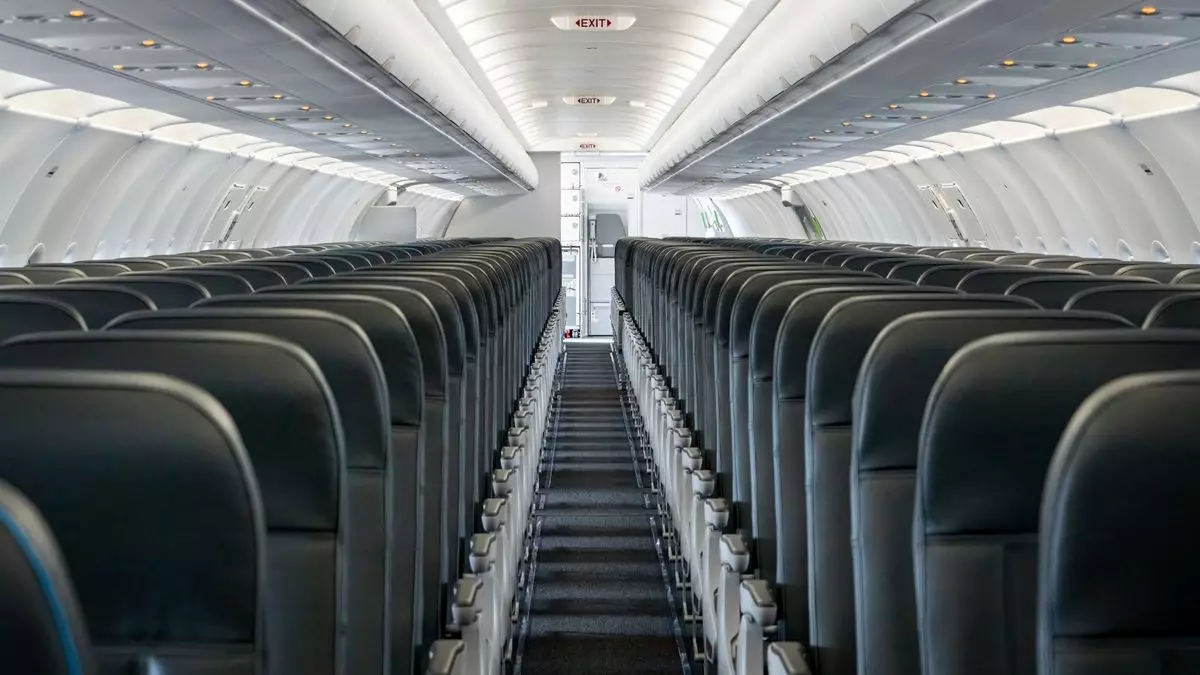The airline industry, which has undergone significant transformations in pricing and revenue models in recent decades, is once again under scrutiny for its financial practices. A recent report from the Senate Permanent Subcommittee on Investigations has revealed that five major U.S. airlines have amassed a staggering $12.4 billion in seat-selection revenue from 2018 to 2023. This considerable sum has emerged as the second-largest source of ancillary revenue for these carriers, surpassed only by bag fees. The public disclosure marks a pivotal moment, as it is the first comprehensive breakdown of seat-selection fees since their inception in 2006.
The five airlines in question include three prominent legacy carriers: Delta, United, and American, paired with two of the biggest ultra-low-cost carriers, Spirit and Frontier. Each of these airlines employs diverse methods in accounting for seat-selection fees, leading to notable disparities in their tax obligations. For instance, both Delta and American adhere to the standard 7.5% federal air transportation excise tax for these fees, the same tax that applies to base airfare. In contrast, the ultralow-cost carriers—Spirit and Frontier—appear to have devised strategies to minimize their effective tax rates, classifying their seat-selection fees as ancillary revenues to evade the excise tax.
This difference has sparked concerns over transparency and fairness in how these revenue streams are reported and taxed. United, for example, has reported a tax rate of merely 4.8% on its seat-selection revenue, while Frontier and Spirit operate with even lower effective rates of 3.1% and 2.5%, respectively. The lack of uniformity in financial reporting raises questions about regulatory oversight and the ethics of such taxation strategies.
The Senate subcommittee’s report recommends that Congress enforce stricter regulations requiring airlines to disclose detailed information regarding seat-selection revenue, paralleling the existing requirements for bag fee disclosures. Additionally, the report urges the Treasury Department to investigate compliance with air travel excise tax regulations to ensure clarity and enforcement across the board. These recommendations, if implemented, could pave the way for more transparency within the airline industry and potentially enhance consumer protection.
Revenue generated from excise taxes plays a crucial role in funding infrastructure improvements at airports and upgrading the FAA’s air traffic control system. Therefore, understanding how these fees are calculated and reported can significantly impact public interests and industry accountability.
Another critical aspect of the report highlights the rising trend of bundled pricing, which some critics argue resembles traditional ticketing models predating ancillary fees. The report indicates that such bundles may lead to a decreased share of customer payments subject to the transportation tax. Consequently, this calls into question whether the airlines are maneuvering these systems to maximize profitability while evading due taxes.
Airlines for America, a group representing major U.S. carriers, has defended the practices of its members, stating that they comply with all relevant laws and regulations. However, they have dismissed the Senate report as a politically motivated critique, asserting that average domestic roundtrip fares and ancillary purchases have decreased by 14% since 2010 when adjusted for inflation.
The report indicates that seat-selection revenues across these five airlines surged to $3 billion in 2023, up from $2 billion in 2018. Notably, this growth is particularly pronounced for budget carriers, with Spirit raising its seat-selection revenue from 5% to 6.6% of total revenue. Unexpectedly, United surpassed bag fee revenues in 2023, generating $1.3 billion from seat selections compared to $1.2 billion from baggage fees, a watershed moment for the airline.
Contrastingly, Delta Airlines relies the least on this revenue stream, with seat-selection fees constituting only 0.3% of its total revenue. The varying dependence on ancillary income underscores different business models and financial strategies among these airlines.
One alarming finding in the report is the practice of concealing seat fees until late in the booking process—a tactic that airlines claim optimizes purchases. Representations from Spirit’s chief commercial officer reveal a systematic choice to require customers to submit personal information before revealing seat selection pricing, seemingly designed to encourage more purchases despite potential pushback from consumers regarding transparency.
Moreover, the report calls out Spirit and Frontier’s incentive programs, which encourage gate agents to identify and charge passengers for carry-on bags, raising concerns about fairness and enforcement of airline policies. With millions of dollars paid in employee incentives over the past two years, questions arise about whether this leads to unfair treatment of passengers, especially those whose bags may technically qualify as free personal items.
This comprehensive investigation into seat-selection revenue patterns sheds light on the complex and often opaque financial practices of U.S. airlines. As consumer advocates call for greater transparency and stricter regulations, the airline industry’s future could hinge on the balance between profitability and fair business practices.

